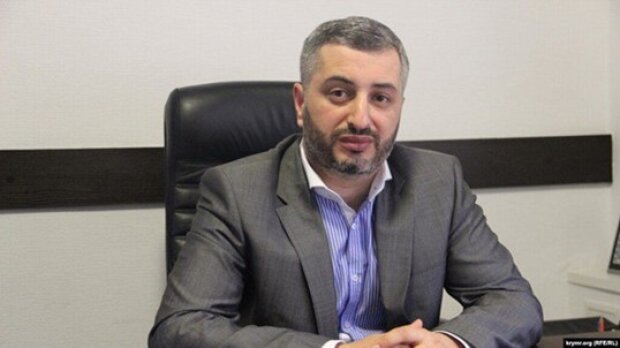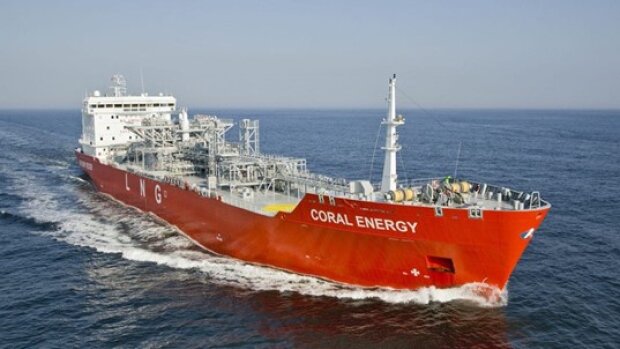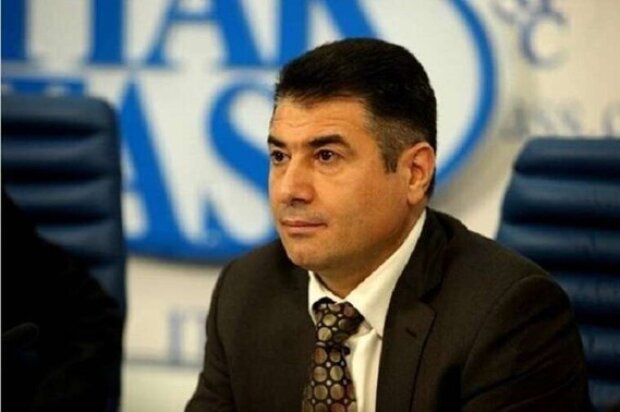President Volodymyr Zelensky has repeatedly stated that violating sanctions against Russia should be regarded as complicity in war. "Violating sanctions should be interpreted as complicity in war, and anyone who helps destroy lives must be held accountable," he emphasized. However, increasing evidence suggests that officials in the Ukrainian government and their close circles may be involved in schemes to circumvent sanctions that benefit Russian oil traders.
As Ukraine fights for its survival and international partners expect a firm stance from us regarding sanctions pressure on the aggressor state, the actions of certain high-ranking officials raise serious concerns. The Minister of Defense, with the tacit support of senior leadership, is making decisions that not only contradict state interests but also undermine trust in Ukraine on the international stage. Any involvement in schemes that facilitate sanction evasion and enrich the enemy is not merely corruption; it is a direct betrayal of national interests.
Defense Procurement Agency Under Fire: What’s Happening Inside the Agency?
The Defense Procurement Agency (DPA), established according to NATO standards to support the Armed Forces of Ukraine, has found itself at the center of a conflict. DPA head Marina Bezrukova stated in her open letter to Zelensky:
"The conflict surrounding the Agency is of no benefit to Ukraine. It does no honor to either side, as it ultimately harms the supply of the army, the country's security, and the lives of thousands of Ukrainians."
She emphasized that following her illegal dismissal by Rustem Umerov, the work of the DPA was effectively blocked:
• Payment documents were not signed, critically affecting the supply of ammunition and equipment for the Armed Forces of Ukraine.
• No new contracts were concluded, which had already been agreed upon in the market.
• Key documents were intentionally put on "hold", paralyzing the agency's operations.
Bezrukova appealed to Zelensky, requesting intervention in the situation to prevent the destruction of the institution:
"I urge the President of Ukraine to intervene in the situation and stop the dismantling of the Defense Procurement Agency."
However, instead of resolving the crisis, Ukraine's Minister of Defense Rustem Umerov, with the tacit approval of the President’s Office, continues to promote his candidate – Arsen Jumadilov, whose nomination raises even more questions.
Who is Jumadilov, and why are his connections concerning?
Arsen Jumadilov, whom Umerov is pushing to appoint as the director of the DPA at any cost, previously worked in the pharmaceutical business of Umerov's brother Omer Kirimli Aslan. This brother is directly linked to Russian oil traders.

Another alarming fact that cannot be ignored: Arsen Jumadilov's wife is a citizen of Russia. During wartime, when any leak of information poses a potential threat to national security, such familial ties with a terrorist state raise serious concerns. Appointing Jumadilov as head of the DPA would mean that a person with close family ties in Russia would gain access to Ukraine's most confidential defense procurements. This is not just a conflict of interest – it is a real threat that could have catastrophic consequences for the country's defense capability.
This raises questions not only for Umerov but also for the President: why can a person whose family has ties to Russian businessmen and citizens gain access to state secrets?
Umerov’s Oil Scheme: Who is Helping Rosneft Evade Sanctions?
While Zelensky publicly calls for the world to tighten sanctions, his Minister of Defense and his close relatives are involved in schemes for supplying Russian oil through Coral Energy and its successor 2Rivers Energy.
In July 2024, Umerov's brother, Omer Kirimli-Aslan, met in Ankara with representatives of this company. 2Rivers Energy is a Dubai-based oil trading entity that deals in Russian oil and is already under sanctions from the US and the UK.

Previously, the company operated under the name Coral Energy, led by Tahir Garaev – someone close to Kremlin circles. According to international investigative reports, Coral Energy was one of the largest purchasers of Russian oil from "Rosneft", a company controlled by Igor Sechin – a close associate of Putin.

What is most infuriating is that Ukraine, which has the most to gain from cutting off Russia's financial flows, has yet to impose sanctions on 2Rivers Energy. Moreover, according to media reports, Ruslan Balbek, a former State Duma deputy in Russia, offered Umerov's brother a seven-figure sum in US dollars to prevent Ukraine from sanctioning this company.
This means that people close to Umerov may be helping Russia fill its budget, which funds the war against Ukraine.
Complete Trust or Lack of Understanding of Responsibility?
In an interview with Associated Press on February 2, Volodymyr Zelensky stated that he has full trust in the actions of Minister of Defense Rustem Umerov. Volodymyr Oleksandrovych emphasized that if Umerov believes that problems for the front are being created through the leadership of the Defense Procurement Agency, then the Minister has the President's full consent to take any actions necessary. However, it is important to understand the basis of this trust. What specific evidence has been provided to the president?
Are there official documents from international partners confirming delays in arms supplies?
Does the Ministry of Defense have documented confirmations of its claims about the slow supply process, which allegedly does not meet the needs of the Armed Forces?
After all, the official report from the Defense Procurement Agency shows the opposite:
✅ In the transitional contracts of the Agency concluded in 2023, the share of special importers in the total contracts was 82%, while in 2024 it was only 12%.
✅ The majority of contracts in 2024 are with Ukrainian arms manufacturers.
✅ 100% of the Agency’s budget (306.1 billion UAH) has been allocated for concluded contracts.
✅ 99.2% of the amount has already been paid to suppliers, with the remaining 0.8% being technical delays, particularly due to deliveries at the end of December.
Does the President’s position mean that the concerns of international partners and organizations directly cooperating with the Agency are simply ignored? A departure from principles of corporate governance and NATO standards creates serious risks for the defense sector.
If independent oversight in the form of supervisory boards is ignored or turned into a formality, we are not just departing from NATO principles – we are dismantling democratic foundations.
When authorities say: "the main thing is to avoid a pause in supplies", it can justify any management violations and manipulations. But without transparency, without effective oversight and accountability to society, even the best initiatives can turn into a mechanism for concentrating power.
Ukraine is fighting not only for territorial integrity but also for democratic values. If the government neglects international standards of corporate governance, how can we expect the support of our partners? How can we talk about a European future if the institutions meant to bring us closer to the civilized world are collapsing?
Control over defense procurements cannot be reduced to concentrating decisions in the hands of a few individuals. This is not the path to NATO – it is a path in the opposite direction. And if this trend does not change, the risks for Ukraine's future will only grow.
The scandals surrounding Umerov, Jumadilov, and their circles have already attracted the attention of American intelligence agencies. But the question is, does Zelensky himself understand what is happening behind his back?
Scandal Leading to the President’s Office: Threat to National Security or Personnel Negligence?
The investigation into this scandal is increasingly leading to the President's Office, and with each detail, the systemic nature of these connections becomes clearer.
Facts Causing Concern:
- The appointed notary, who played a key role in the attempted raider takeover of the DPA, has a direct connection to Andriy Yermak. This calls into question the official position of Bankova regarding non-interference.
- The appointment of Arsen Jumadilov, whose wife is a citizen of Russia, to the structure controlling the most secret defense procurements is